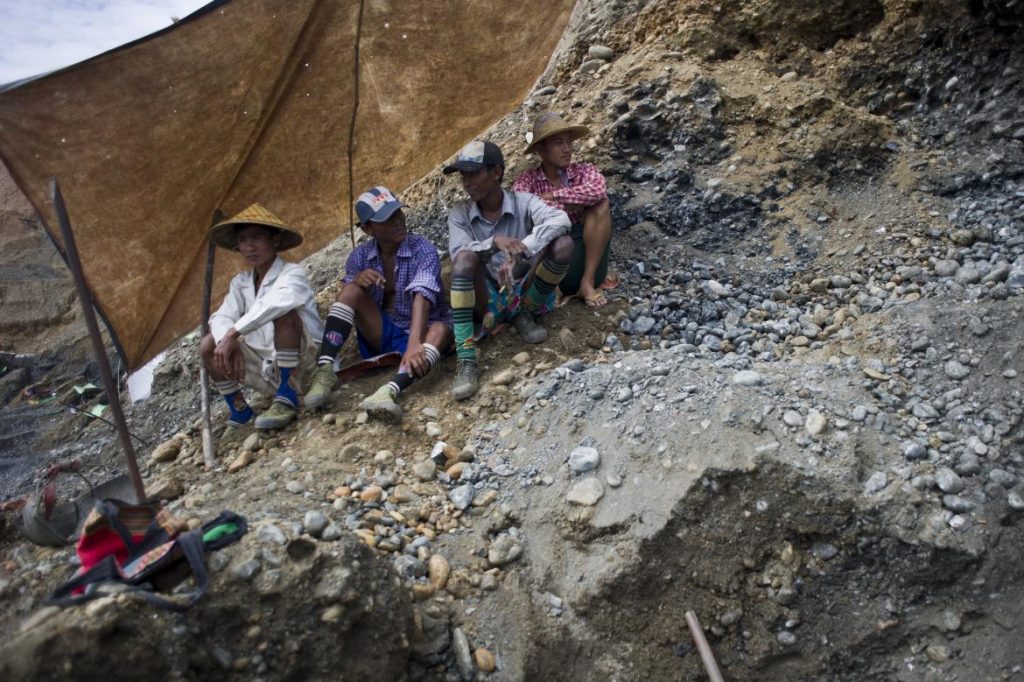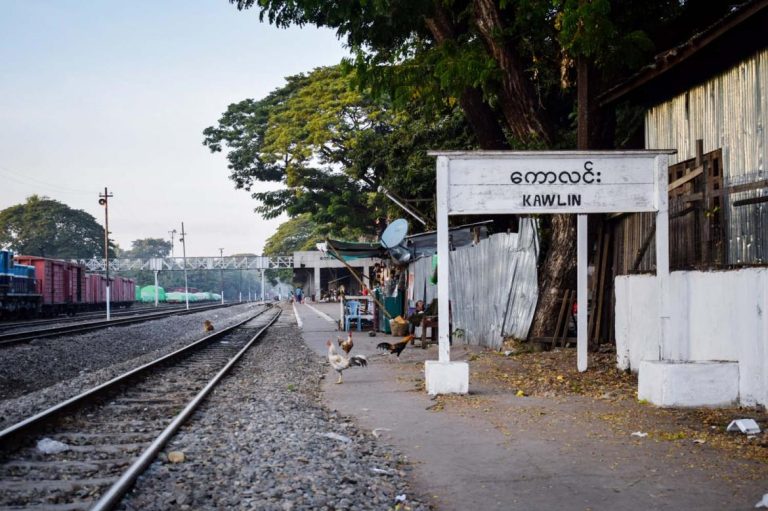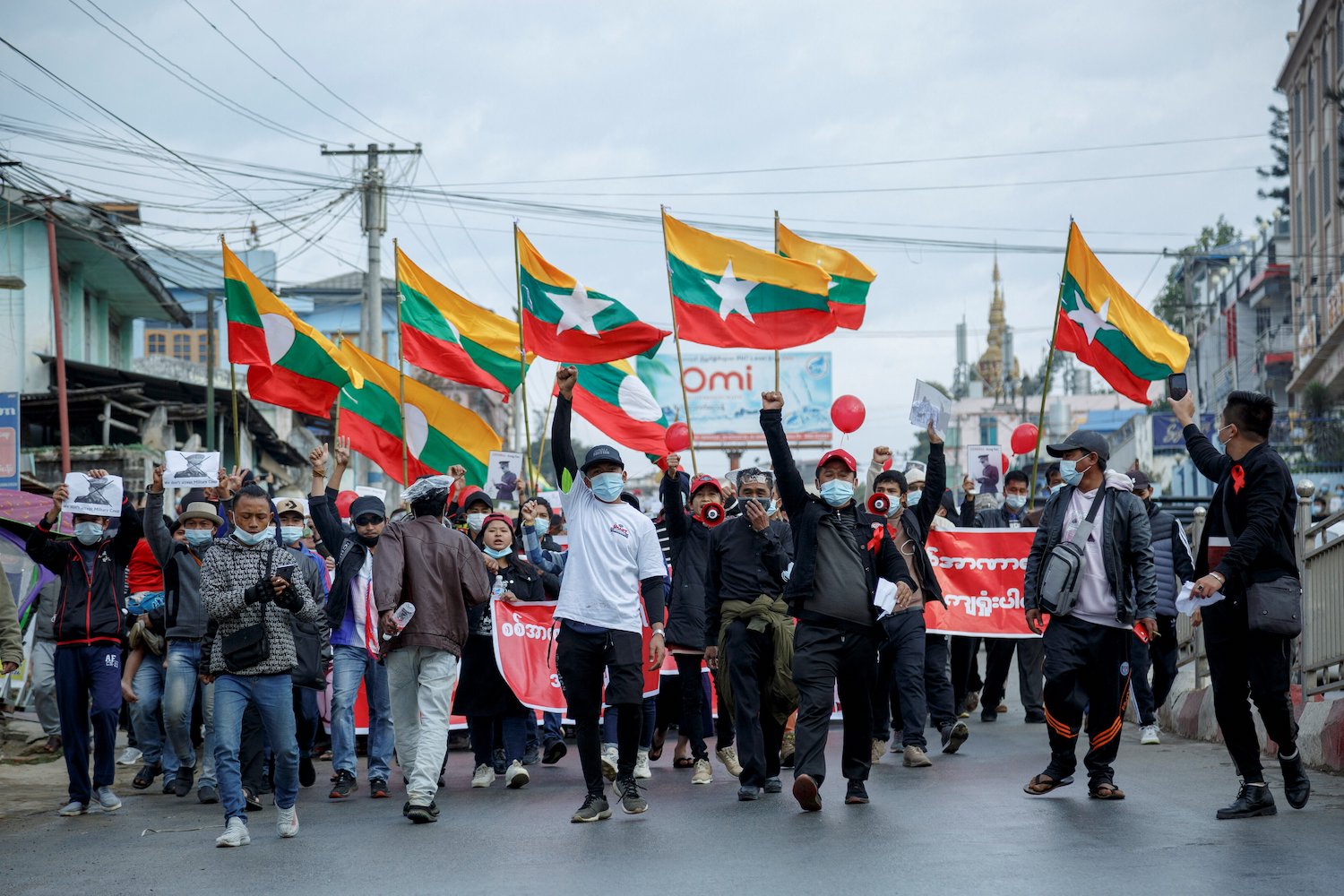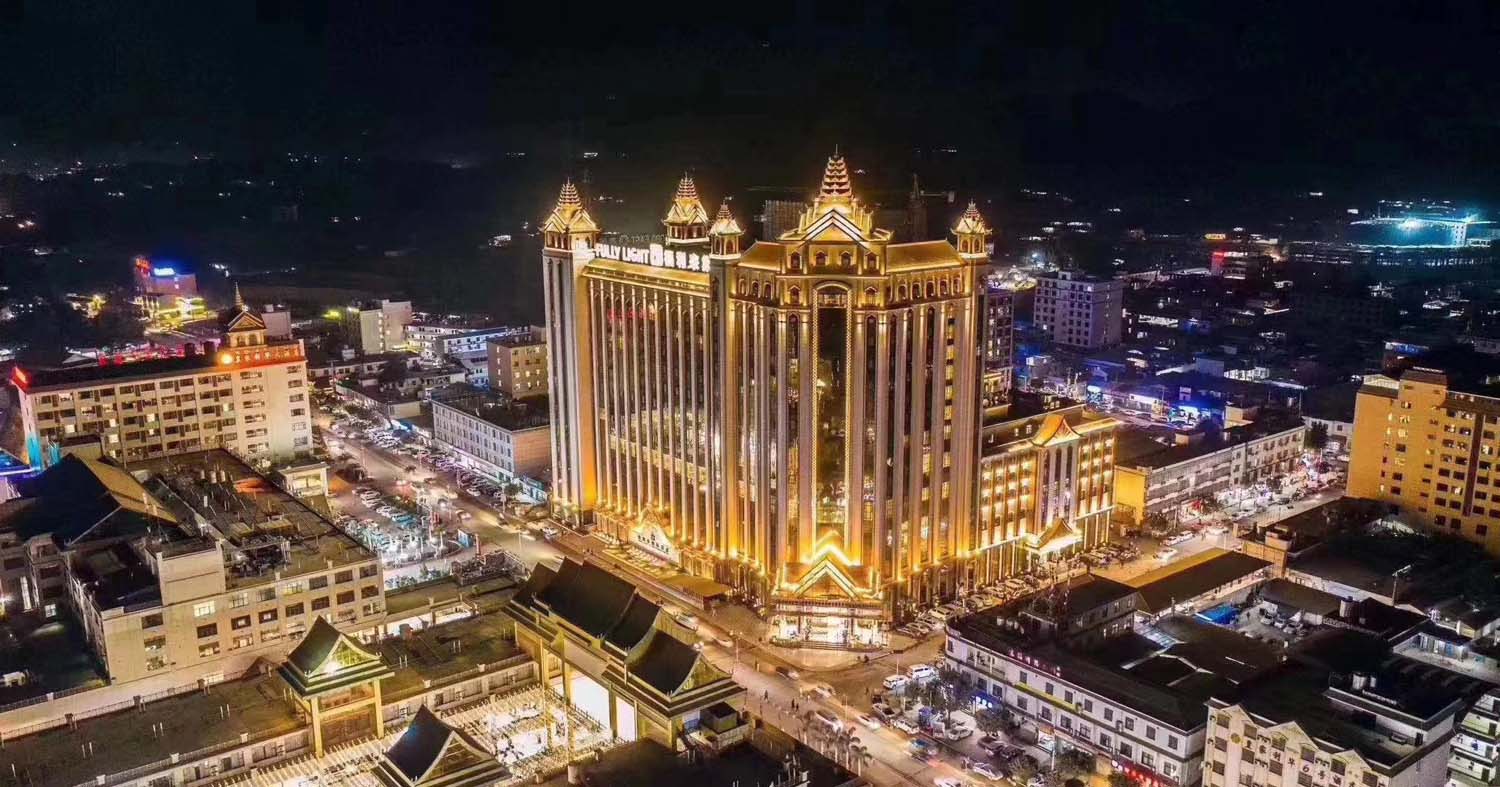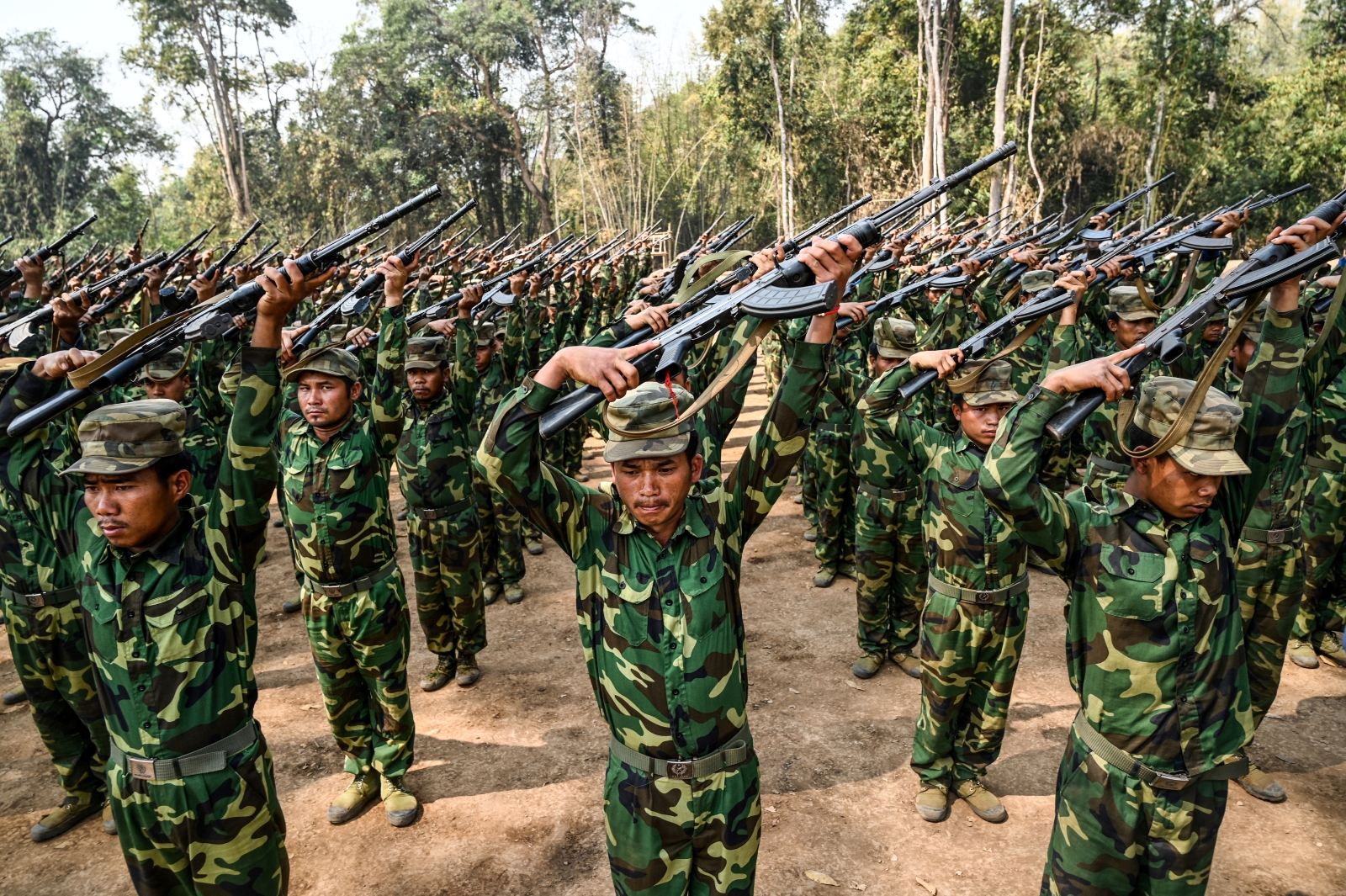Military elites, well-connected families, drug lords and crony companies are cashing in on a jade trade valued at up to $31 billion in 2014, says an exposé by a global watchdog.
The jade industry in Myanmar may be the world’s “biggest natural resource heist” says a report by a watchdog group that estimates production of the gemstone reached as much as US$31 billion in 2014.
The jade trade is being controlled by networks of military elites, drug lords and crony companies, says the report by London-based Global Witness, Jade: Myanmar’s ‘Big State Secret’.
After a year-long investigation the group estimates the value of the secret jade trade at $31 billion in 2014, when China officially imported about $12 billion of the gemstone.
“It’s a staggering amount,” said Global Witness analyst Juman Kubba. “It is the equivalent of almost half of the country’s GDP and almost 46 times the amount spent on health in Myanmar last year. Jade is Myanmar’s most valuable natural resource.”
The Global Witness report says those most benefitting from the trade include the family of former junta leader Senior General Than Shwe, the Minister of Livestock, Fisheries and Rural Development, U Ohn Myint, and a former secretary general of the ruling Union Solidarity and Development Party, U Maung Maung Thein.
Support more independent journalism like this. Sign up to be a Frontier member.
It says other beneficiaries of the lucrative business include military-owned Union of Myanmar Economic Holdings Limited, ‘crony’ companies such as Asia World, drug lords such as Wei Hsueh Kang, who is described as a long-term financier of the United Wa State Army, and senior members of another big armed ethnic group, the Kachin Independence Army, the armed wing of the Kachin Independence Organisation.
The October 23 report said at least two companies, Kyaing International and Myanmar Naing Group, are controlled by sons of former Senior General Than Shwe and have mining operations at Hpakant in Kachin State, one of the main jade production centres.
Global Witness believes that another company, Kywe Wa Sone, also has close links to the former dictator’s family.
There are several grades of jade and the most valuable, imperial jade, has long been coveted in China, where it has traditionally been associated with royalty and long been more valued than gold. In 2014, an imperial jade necklace sold in Hong Kong for a record $27.44 million.
Global Witness said it believes exports to China far exceeded official figures of about $12 billion in 2014, with most shipments crossing the border illegally.
“The question is, what is happening to this money? Because it certainly isn’t reaching the people in Kachin State, or across the country,” said Ms Kubba.
Despite being rich in natural resources, Kachin is one of the least developed states in the country.
“A single kilogram of the highest priced jade sold at the 2014 [Gems] emporium would have generated enough revenue to fund 147 health clinics in Kachin State for one year,” the report said.
It said that as well as the people of Kachin not receiving a fair share of the proceeds from jade mining, it is also having a devastating effect on livelihoods and the environment.
“Mountains are being turned into valleys and valleys are being turned into mountains,” said Ms Kubba.
The report said a landslide in April at a mine operated by a company owned by U Maung Maung Thein killed up to 60 people. It quoted residents as saying the tragedy was caused by the irresponsible dumping of waste by the company.
Control of the trade has been a factor in the conflict between the Tatmadaw and the Kachin Independence Army, which resumed fighting in 2011 after a 17-year ceasefire collapsed, displacing about 100,000 people.
Jade has long been the main source of income for the KIO, including taxing companies operating in areas under its control, says the report, which challenges a perception that the government is not in full control of the mines around Hpakant.
“Although the KIA/KIO retains considerable influence in the area and has succeeded in taxing the companies, this has not impaired the government’s allocation of licences, its own taxation of the concessionaires, or its ability to disclose information on these and other issues to the general public,” it says.
“Many people in Kachin are concerned that the KIA/KIO has a corruption problem of its own,” said Mike Davies, Asia director at Global Witness.
It is also having an effect on the continuation of the conflict, said Mr Davies. The KIA was among the groups that declined to join eight armed groups that signed a national ceasefire accord with the government in Nay Pyi Taw on October 15.
“If you are a small-scale miner and you find a large piece of jade, you will need to pay a 10 percent tax to the KIA, and a 20 percent tax to the Tatmadaw. You will also be at risk of extortion at the many [Myanmar Army] checkpoints between Hpakant and the Chinese border, or Mandalay if that’s where you choose to sell your product,” he said.
“If a real peace agreement is signed, then those checkpoints will have to go, and they [the Tatmadaw] know that this will affect their income,” he said.
An official at the Ministry of Mines, which is cited in the report, declined to respond to a request for comment on the Global Witness report.


